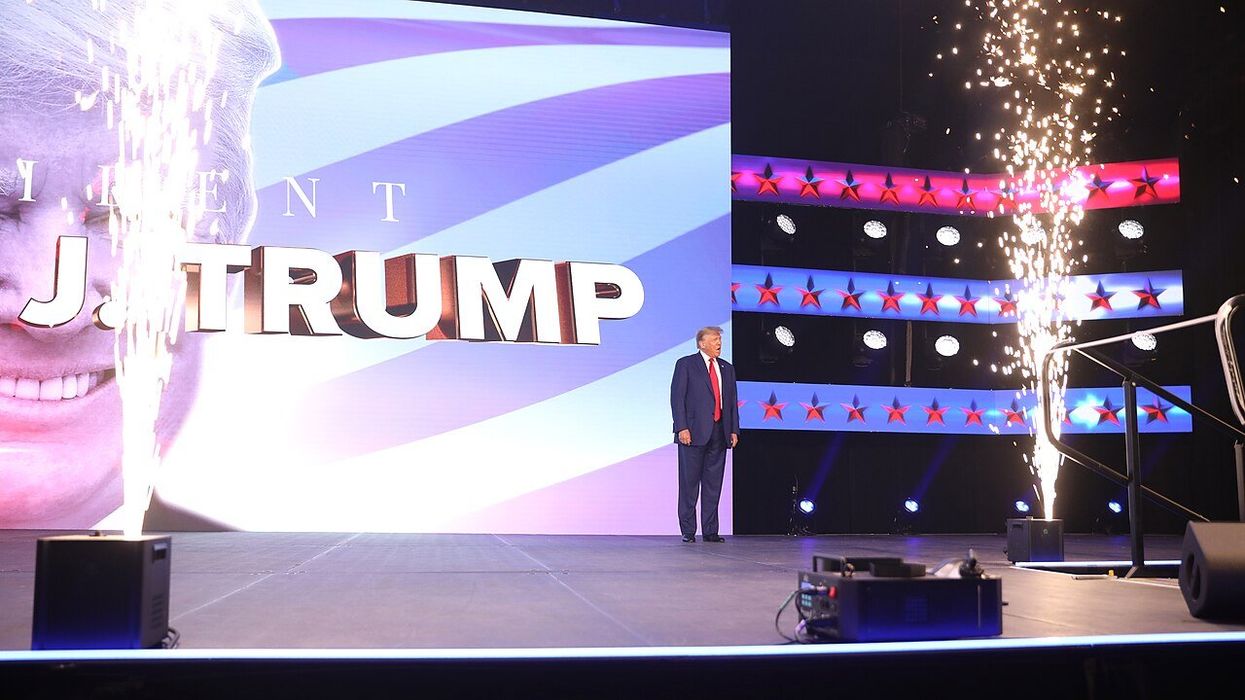This 'clearcut' section of the Constitution bars Trump from running for office: conservative legal scholars

August 21, 2023 | 12:51PM ETBank

Under the U.S. Constitution, the fact that Donald Trump is facing four criminal indictments doesn't, in itself, automatically disqualify him from running for president in the 2024 election. But according to two conservative legal scholars — the University of Chicago's William Baude and the University of St. Thomas' Michael Stokes Paulsen — there is one thing in the Constitution that disqualifies him: Section 3 of the 14th Amendment, which addresses insurrection.
Some of Trump's critics are arguing that because Trump committed an act of insurrection after the 2020 election, he is barred from running for president against under Section 3.
In an article published by The Guardian on August 21, journalist Sam Levine stresses that while criminal charges per se don't disqualify one from running for president, acts of insurrection do.
POLL: Should Trump be allowed to hold office again?
"As Donald Trump fights a mountain of criminal charges," Levine explains, "a separate battle over his eligibility to run for president in 2024 is fast emerging. The U.S. Constitution sets out just a handful of explicit requirements someone must meet to be the president. They must be at least 35 years old, a 'natural-born' citizen, and a United States resident for at least 14 years. The Constitution also bars someone who has served as president for two full terms from running again. None of those requirements disqualify Trump, or anyone else charged with a crime, from running for federal office."
Levine continues, "But one provision in the Constitution, Section 3 of the 14th Amendment, makes things more complicated. It says that no person who has taken an oath 'as an officer of the United States' can hold office if they 'have engaged in insurrection…. or given aid or comfort to the enemies."
Steven Calabresi, a conservative law professor at Northwestern University in the Chicago area, told The Guardian that Section 3 is "very clearcut" about insurrection.
Calabresi explained, "Section 3 nowhere limits itself to the Civil War or Confederates who broke their oath. It's in general language, and so, it applies to anyone who incites an insurrection or rebellion."
READ MORE: Conservative legal scholars argue Trump is disqualified for office under 14th Amendment
Ohio State University law professor Edward Foley is hoping that Section 3 concerns involving Trump will be dealt with sooner rather than later.
Foley told The Guardian, "It's really important to resolve this as soon as possible and definitely before the election and not afterwards. I am worried that if this doesn't get resolved definitively, this issue could arise on January 6, 2025 if Trump were to win the Electoral College having been on the ballot. You could envision an effort to try and disqualify Trump after he's won, and I think that would be a disaster. That would be a real constitutional crisis."
READ MORE: The Supreme Court could be last line of defense in another Trump coup attempt: conservative
Read The Guardian's full report at this link.